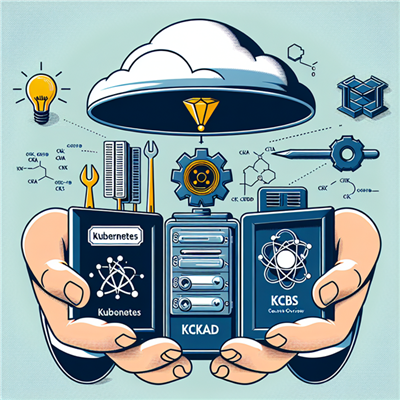
In the fast-paced world of IT, ensuring that your skills are up-to-date and in line with industry trends is essential. One such trend is the increasing shift towards cloud technologies, with Microsoft Azure leading the way. Consequently, securing a Microsoft cloud certification can give you a competitive edge in the market. This article will discuss the career benefits that come with earning a Microsoft Cloud Certification.
In today’s technology-driven world, cloud computing has become an essential backbone for businesses of all sizes. As companies increasingly shift to cloud-based solutions, the demand for skilled professionals who can manage and optimize cloud infrastructures has skyrocketed. Among the many cloud platforms, Microsoft Azure has established itself as one of the leaders in the industry.
With this rise in demand, earning a Microsoft Cloud Certification can serve as a powerful career booster, offering enhanced salary prospects, expanded job opportunities, and long-term career growth. In this article, we’ll explore why obtaining a Microsoft cloud certification is one of the best moves an IT professional can make today.
Why Microsoft Cloud Certification?
Before diving into the career benefits, it’s essential to understand what makes Microsoft Cloud Certifications stand out in the crowded market of certifications. Microsoft Azure is a comprehensive cloud platform that offers over 200 services, including infrastructure as a service (IaaS), platform as a service (PaaS), and software as a service (SaaS).
By earning a certification, you validate your skills in using these services effectively, making you a valuable asset for companies seeking cloud expertise.
Here are the core benefits of earning a Microsoft Cloud Certification and how it can elevate your career.
1. Increased Salary Potential
One of the most compelling reasons professionals pursue cloud certifications is the significant boost in salary. Employers value certified professionals because they bring verified knowledge and skills to the table. Certified individuals are equipped with the tools to implement and manage cloud infrastructures, automate processes, and ensure security—all of which are highly valued in the marketplace.
What’s the Salary Boost Like?
According to Global Knowledge's IT Skills and Salary Report, professionals who hold Microsoft certifications, particularly in cloud, often command higher salaries than their non-certified counterparts. For instance:
- Azure Administrator Associate: Those certified as Azure Administrators typically earn between $90,000 to $125,000 annually.
- Azure Solutions Architect Expert: Certified Azure Architects can see salaries ranging from $120,000 to $150,000 depending on experience and location.
Additionally, having multiple certifications can further increase your earning potential. As businesses continue their cloud migration, skilled Azure professionals are becoming more valuable, which directly impacts salary growth.
2. Enhanced Job Opportunities
The global shift to the cloud has created a massive demand for professionals who are skilled in cloud technologies, especially Microsoft Azure. With 95% of Fortune 500 companies using Azure, the need for certified professionals is steadily increasing.
Jobs You Can Pursue with a Microsoft Cloud Certification
Microsoft offers a range of certifications that cater to various roles within the cloud ecosystem. Here’s a look at some popular certifications and the job roles they target:
- Azure Fundamentals (AZ-900): This entry-level certification is perfect for individuals who are new to the cloud and want to understand Azure services. It can help secure roles like Cloud Support Specialist or Cloud Sales Specialist.
- Azure Administrator Associate (AZ-104): For those looking to manage cloud infrastructure, this certification targets roles such as Cloud Administrator, Systems Engineer, and Azure Support Engineer.
- Azure Developer Associate (AZ-204): If you're a developer aiming to create cloud-based applications, this certification can lead to roles like Azure Developer or Cloud Application Developer.
- Azure Solutions Architect Expert (AZ-305): For those with advanced experience, this certification can land you positions like Cloud Solutions Architect or Enterprise Architect.
The Microsoft Cloud Certification portfolio covers a wide range of cloud-related job roles, ensuring that you can find the right certification path for your career goals.
Job Security and Growth
The global cloud market is expected to grow exponentially in the coming years, with enterprises continuing to invest in cloud technologies. According to Gartner, public cloud spending will exceed $500 billion by 2025. This rapid growth ensures that cloud professionals, particularly those with Microsoft certifications, will continue to be in high demand.
3. Career Growth and Advancement
Earning a Microsoft Cloud Certification isn’t just about landing a job; it’s about long-term career growth. These certifications demonstrate your dedication to continuous learning and staying updated with the latest technology trends. They also provide a clear pathway for career progression, from entry-level positions to advanced roles.
Career Paths
- Entry-Level: Starting with Azure Fundamentals (AZ-900), you can build a strong foundation in cloud technologies. This certification is ideal for entry-level positions or individuals transitioning into cloud roles.
- Intermediate: Once you’ve gained some experience, certifications like the Azure Administrator Associate (AZ-104) or Azure Developer Associate (AZ-204) help you advance to roles like Cloud Engineer, Cloud Developer, or Azure Support Engineer.
- Advanced: For seasoned professionals, expert-level certifications like the Azure Solutions Architect Expert (AZ-305) or Azure DevOps Engineer Expert (AZ-400) enable you to take on leadership roles such as Cloud Solutions Architect or DevOps Manager.
Leadership Roles and Specialization
In addition to standard job roles, specialized certifications like Azure Security Engineer Associate (AZ-500) and Azure AI Engineer Associate (AI-102) allow you to focus on specific areas of cloud infrastructure, such as security and artificial intelligence. This opens up career opportunities in more specialized and senior-level positions, including Chief Cloud Security Officer or AI Solutions Architect.
4. Validation of Skills and Expertise
A Microsoft Cloud Certification serves as a benchmark for your skills. It is recognized globally, ensuring that employers know you have the expertise to manage Azure cloud environments effectively. Certified professionals are better equipped to address complex problems, architect scalable solutions, and ensure compliance with industry standards.
Why Employers Value Certification
In the competitive tech industry, having a Microsoft Cloud Certification makes you stand out. For employers, certification validates that you have the hands-on experience and technical knowledge to perform your job effectively. It also demonstrates a commitment to professional development, a quality that many companies value highly.
5. Stay Updated with Cutting-Edge Technology
The cloud landscape is constantly evolving, with new tools, features, and best practices emerging regularly. By pursuing Microsoft Cloud Certifications, you stay up-to-date with the latest advancements in cloud technology. Microsoft regularly updates its certification exams to reflect new Azure features and industry best practices, ensuring that certified professionals remain relevant in their roles.
Ongoing Learning Opportunities
Microsoft offers continuous learning resources, such as free online training modules, hands-on labs, and certification updates. This means that as a certified professional, you can continually expand your knowledge and stay ahead of the curve.
How to Earn a Microsoft Cloud Certification
To earn a Microsoft Cloud Certification, you need to enroll in a Microsoft Azure cloud course. This course will provide you with the necessary training and knowledge to pass the certification exam.
Azure cloud classes are typically delivered by certified trainers who have years of industry experience. They will guide you through the various aspects of the Azure platform, helping you master the skills required to manage and implement Microsoft's cloud technologies.
At Koenig Solutions, a leading IT training company, we offer a comprehensive range of Microsoft cloud training and certification courses. These courses are designed to help you gain a deep understanding of Microsoft's cloud technologies and prepare you for the certification exam.
Whether you are a beginner looking to kickstart your career in cloud computing or an experienced professional seeking to validate your skills, our Microsoft cloud training and certification courses can help you achieve your career goals.
Conclusion
Obtaining a Microsoft Cloud Certification is more than just an addition to your resume—it’s a strategic investment in your future. With the potential for higher salaries, enhanced job opportunities, and long-term career growth, cloud certifications are essential for IT professionals looking to stay competitive in a rapidly changing industry.
Whether you’re just starting your cloud journey or looking to specialize in a particular area, Microsoft offers certifications for every stage of your career. The demand for skilled cloud professionals will only continue to grow, making now the perfect time to pursue your Microsoft Cloud Certification and secure a prosperous career in the cloud industry.







COMMENT